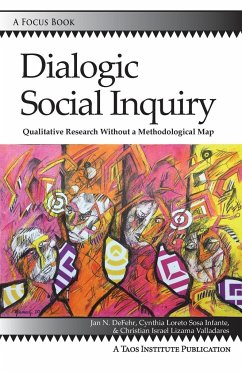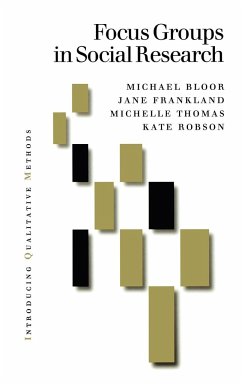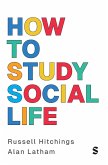Qualitative research courses teach novice researchers that legitimate knowledge production requires applied methodology. Students beginning thesis or graduate studies are likely to learn that their research methodology is to be found in textbooks and journals, far from the relationships at the center of their proposed research projects. The challenge, as it is commonly construed, is to locate a suitable method and then apply it faithfully. When produced outside of its sites of application, methodology may be incoherent with participant realities and rationalities; it may displace local traditions of inquiry. As a non-living device, methodology cannot sense the emergence of unanticipated changes, constraints, and possibilities. Led by agendas produced elsewhere, researchers may be unanswerable to prompts and invitations found only within the research context itself. Dialogic Social Inquiry draws on social construction theory, collaborative-dialogic practices, and the particularity of two master's degree theses to show how dialogic social inquiry can produce its own unrepeatable process. Dialogic social inquiry comes from, and remains connected with, the participant community at the core of the inquiry effort. When a research process derives from its own living social ecology, it can more sensitively and boldly do justice to the dynamic requirements and transformative possibilities embedded in the work.
Hinweis: Dieser Artikel kann nur an eine deutsche Lieferadresse ausgeliefert werden.
Hinweis: Dieser Artikel kann nur an eine deutsche Lieferadresse ausgeliefert werden.








